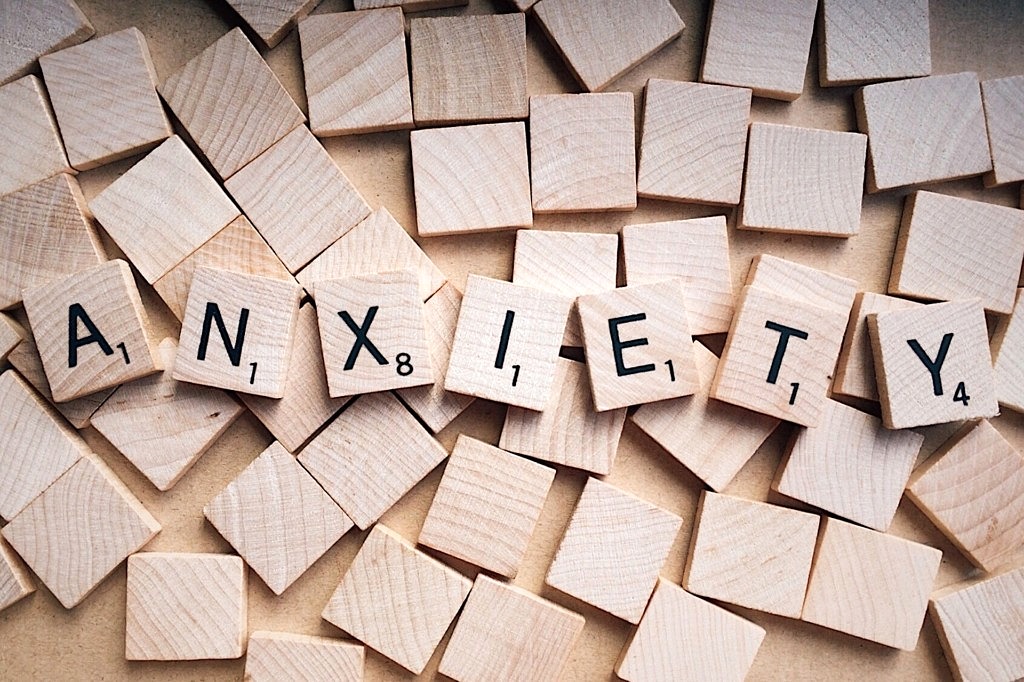The Nervous Nurse: Anxiety and the Clinical Environment
I remember being in my third year of Nursing School and wanting nothing more than to puke (and then take a nap). I was in a peds medicine rotation and clinical was awful. I had a brutal instructor who had a big chip on her shoulder about not having a degree but educating those of us who were working towards one. I remember being so terrified of making a mistake that I was pretty much guaranteed I would. I was an A-student and always had been. But then this rotation. My instructor threatened to put me on what my university called a “learning contract” which is basically the last ditch effort to keep someone from failing. Her reasoning was that my infant patient, who I had cared for for several weeks, had been switched from a nasojujenal tube to a nasogastric tube and I had failed to note it when doing my research the day before. So, before I got on the floor I said to my instructor “I’ll go look it up right now”. I was taught in the classroom that knowledge is power and that it is ok to not know everything, so long as you know where to find the answer. My instructor missed that memo I guess because she replied “no you won’t. You aren’t going near that patient today, you are unsafe”. She then proceeded to tell me I would need to go on a learning contract. This was my first mistake in a world where you are told constantly that mistakes are going to happen. I was already struggling with anxiety and this pushed me completely over the edge.
I was sent into a complete breakdown. Not only was I shocked that I was not given a chance to research and acquire the knowledge I needed to practice, but that I was told I was unsafe. Like I mentioned, I had been taking care of this little guy for weeks. He was from a northern community and his mother couldn’t be in hospital with him. He was three months old and I adored him. I would never do anything to harm him. To be told that because I did not look up information within a specific time period but that I would go and check it now I was unsafe and that I was “not going near that patient today” made me feel like a monster. It made me question so much about myself and how I worked as a nurse. My heart was broken and my spirit was torn up. This incident sent me into a serious crisis with anxiety, one that didn’t let up until well after I started my professional career.
Anxiety was not new to me. I had my first panic attack when I was 20, but it wasn’t until nursing school three years later that I found myself in a place where I couldn’t manage it. The frustrating part is that I wasn’t alone, and the vast majority of us who struggled with anxiety, specifically with clinical anxiety, did so because of poor instructors who felt the need to make life difficult for their students. According to Linda M. Moscaritolo, who wrote the article Interventional Strategies to Decrease Nursing Student Anxiety in the Clinical Learning Environment (Journal of Nursing Education, 2009), anxiety and stress are common in the clinical setting. She asserts that “high levels of anxiety can affect students’ clinical performance, presenting a clear threat to success in a clinical rotation” (2009). I definitely saw this happening within myself and my peers. This particular instructor saw asking questions as a sign of weakness and would often not provide us with an answer. So more and more, out of our desperation, myself and my classmates in my clinical group would hide from her, going to each other for help instead of going to the person who was there to help us. Talk about unsafe practice. We were barely sleeping, our stress was making us act in ways we normally wouldn’t, and our overall wellbeing was brought into question.
Unfortunately, this is not a new phenomenon. Moscaritolo asserts that the stress and anxiety amongst nursing students in the clinical setting has been present in research studies dating back to the 1970s. In her research, she points out that the top reasons for students experiencing stress and anxiety include fear of making mistakes, faculty evaluation and theory gap – as she defines it, theory gap is the difference between what is taught in the classroom and how nurses practice in the field (Moscaritolo, 2009). This was definitely something that caused stress for me. As I previously mentioned, I had been told by professors in class that if you don’t know something you need to know how to look it up. I wasn’t given that opportunity, so even though I knew how to acquire the knowledge, I wasn’t allowed to. When you become a nurse and start your own career, this would never happen. You are expected to work within your scope of practice and to perform tasks based on your own ability to obtain the necessary knowledge to do so. If you feel unsafe, then by all means, speak up to your colleagues or administration and seek help, but it would never be enough to say “oh, you just don’t know it, go home” when someone is eager and willing to learn. So why is it acceptable to do this to student nurses? Shouldn’t it be the responsibility of the instructors or nurses on the unit to teach students how the real world works?
I’m not saying that there aren’t unsafe student nurses out there. There absolutely are, and nurses and instructors need to be aware of these situations and see how they can help support those who are struggling. But the fact of the matter is that far too often, students are being labelled as unprepared or unsafe with no proven track record, simply because they are students and learning. When I was registered and started my own career, I made a promise to myself that I would not be one of these nurses or instructors who don’t give students the benefit of the doubt. And sometimes, that can be hard. Sometimes I want to jump right in and show them how to get the job done *dramatically flips hair and pulls up shirt sleeves*. But, as nurses, we need to let students learn. And we need to protect them from undue anxiety and stress, which will cause them to have decreased success in their studies, and potentially their careers. As educators, faculty at nursing schools need to be willing to deal with issues in the clinical environment and support their student nurses. Clinical instructors need to be chosen carefully from among those nurses who have a passion for education and who will seek out ways to make future RNs more comfortable in their learning environment.
This time of your schooling may be hard, but I promise you, it gets better. And when you become a professional, remember how it felt to be a student, and strive to change the face of nursing education for the better.
Have you ever experienced stress or anxiety at clinical? Share your stories in the comments, I would love to hear from you! Follow me on twitter @knowitnurse and share your thoughts!




